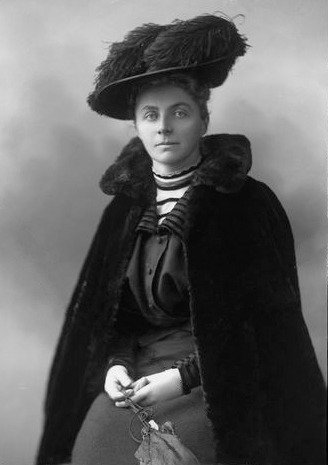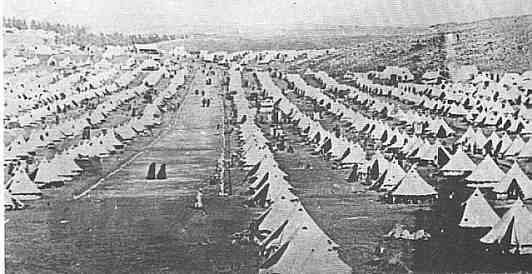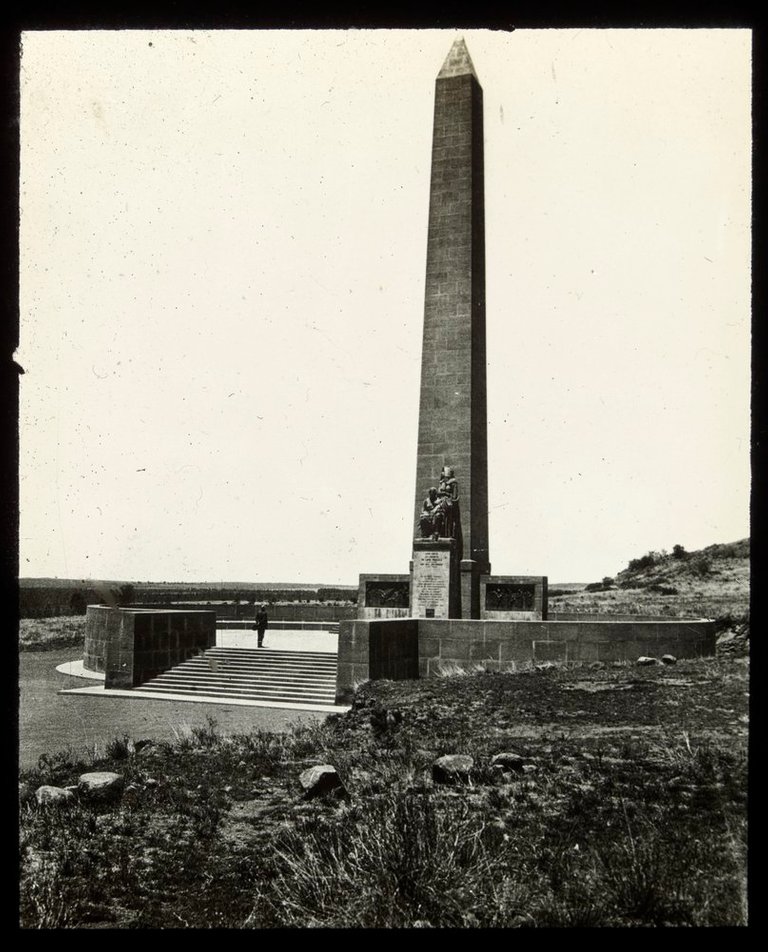
Continuing from my first article…
Emily became depressed and exhausted when she saw the disregard that the British officers had for the plight of the women and children in the “refugee” camps.
Official reports by the Military to England were glossed over; the desperate situation was not being honestly reported. Kitchener in correspondence in 1901 with the British Secretary of State for War St John Broderick, denied that the women and children of the Boers still fighting (called Undesirables) were getting half rations compared to the other families whose husbands had surrendered, (they were actually getting slightly more). Kitchener said that things must be uncomfortable in the camps to persuade their menfolk to surrender.
Emily measured the rations to see exactly was being given.
To compare the two classifications: daily rations of those who had surrendered (Hands Uppers) called “Refugees”
Flour/mealie meal = 1 pound; meat = ¾ pound; coffee = 1 ounce; sugar = 2 ounces and salt ½ ounce
This compared to “Undesirables” rations
Mealie meal/starch = ¾ pound; meat =1 pound (twice a week); coffee, sugar and salt were at the same level.
Of course, no education, no hospitals could be found in the camps. The dead were taken out at night and buried in mass graves.

By now stories were filtering into Britain hinting at the humanitarian crisis brewing in South Africa. This was not even telling the story of what was happening also in the “Black camps” where they were also dying at an appalling rate. Emily tried to enlist help from white women in South Africa but they were disinterested in their plight.
Emily returned to England to tell the story from the side of the Boer women. First she spoke to various politicians, like Broderick, but it had little effect. She was reviled and ostracised from her peers, she spoke at many meetings but her conduct was regarded as politically motivated and her conduct was “unpatriotic”, even treacherous. Her stories were dismissed as bloodcurdling. Eventually Broderick started to take Emily’s information seriously but never publically admitted it.
In the three months since she had spoken to Broderick, close to three and a half thousand children had died. This was not counting the deaths among men, women and the forgotten black people.
Emily tried to secretly return to South Africa but her identity was uncovered. She was physically manhandled and returned to England after being detained on the ship at Cape Town. She was ashamed of her country’s military and unbecoming conduct.
Eventually Britain sent their own “Ladies Commission” towards the end of 1901. By now the Military had a chance to “clean up their act” and improve conditions in the camps. Even so the commission found conditions unacceptable in the camps.
By the end of the Boer War, there were just under 300 000 inmates, of which about 30 000 whites, about 25 000 children died. Of the black camps about 25 000 people died.
The war ended when the Boers saw the futility of continuing. If they continued their resistance, the annihilation of the Afrikaner nation was assured.
Emily left England for much needed peace and quiet. Next to a lake in France she faithfully recorded the stories of the Boer women and children in a book called: “the brunt of the war and where it fell”
After the war, Britain grudgingly created a three-million-pound repatriation fund to restore the devastated inland of South Africa, however corruption and endlessly dragged out bureaucratic process prevented any relief coming to the Boer, whose houses and livestock had been destroyed, there were even areas of farmland which had been salted to prevent crops from growing.
Emily returned to South Africa again in 1903; this time the military would be unable to prevent her from visiting the Transvaal. As she travelled, she saw devastation everywhere, destroyed farms and bones of dead animals. The bones reminded her of the passage in Ezekiel in the Old Testament of the Bible. (See Ezekiel chapter 37, first two verses)
1 The hand of the Lord was upon me, and carried me out in the spirit of the Lord, and set me down in the midst of the valley which was full of bones,
2 And caused me to pass by them round about: and, behold, there were very many in the open valley; and, lo, they were very dry.
She went to General Christiaan De Wet’s farm; his house had been dynamited, all he had was his rifle, his faithful horse Fleur and his wife Cornelia, and some children. The De Wets were always making jokes and laughing. He said if he did not laugh, he would die. It was the same for all the other farmers. She traveled throughout the country, hearing the terrible stories. I suppose it was cathartic for the victims, but it placed a huge burden upon Emily.
She sent telegrams to England to plead for more aid as starvation was everywhere. But the military intercepted her telegrams and diverted them to the Governor Chamberlain.
She read an article in the Rand Daily Mail that one million pounds had been distributed but that administration costs amounted to one and a half million pounds! And this from a pro-British newspaper. The scheme was a failure.
Emily had a brainwave and devised a plan. Why not buy ploughs and oxen and donate them to the destitute farmers? She raised funds in England and put her plan into action. The terrible drought that was being experienced inland broke and crops were able to be grown. She almost single handedly had saved a nation.
She then devised a spinning and weaving plan to assist the women in generating money in these impoverished Boer communities. Emily was now about 45 years old and the health of her heart was not good. She worked with one community at a time until the business took off. Others helped her and she continued until 1907 when she returned to England.

In 1913 a monument had been erected in Bloemfontein to honour the dead women and children of the concentration camps. Emily was invited to unveil the monument, she tried to come but the difficulties of her ailing heart prevented her arrival at the high altitude town. Her speech was read at the ceremony where over 20 000 people attended.
The gratitude for this wonderful woman by the Boer women was shown in many ways. For example they sent her little gift parcels with South African delicacies in for the remainder of her life.
.jpg)
As much as most of England hated her, she was loved in South Africa. Her noble spirit had done much to repair the ruins of war.
(acknowledgements: Wikipedia, Elsabe Brits who wrote "Emily Hobhouse, beloved Traitor"
I read Emily Hobhouse courage first part... Now i reads second part .. In her life was so struggle...She working to change, the deprived conditions inside the British... @fred703
Emily Hobhouse a name of gream woman... Thanks @fred703.. for an wonder woman history ..Emily Hobhouse is famous for exposing the appalling conditions of Boer families, herded by the British into concentration camps during the Boer War in South Africa
With pleasure I read the second part. Really amazing woman. Unfortunately now there is no similar person who will sacrifice everything for the sake of his work. Thank you for a very interesting story.
Really Emily Hobhouse is the role model for womens. Her sacrifice for humanity always rememberable. Thanks sir @fred703 for the valuable content.
Oh, yes, my friend, despite all the heavy and oppressive policies of England, Emily showed extraordinary courage and a noble heart in such a difficult situation. She's a great woman! Thank you @fred703
daring woman
Some amazing and sad history of our country in her story there. Fascinating though, especially for someone that did not do history at school. Thanks @fred703
Emily was really good leady.she loved to the every body. She was very gentelmen and they helped everyone. So people loved very much.
genteel woman or gentle woman, I do get your thought and agree with you
Emily was really a courageous lady, such type of humane loving born very fair . I read the blog it was really nice and interesting. Its a history. I like to read history. Thanks for sharing.
@originalwork
A tremendous piece of knowledge you are posting an interesting story.i love it very much..Emily was such a nice lady..she did outstanding job with full sympathy.she is a good example for taday,s woman.words are nothing before her courage...
Your post is so good
Wonderful writing.... You are a good writer...
Thanks for sharing @fred703...
great writing. nice article. thanks for @fred703
Good story,,I like your all content..The first part was awesome,,second part also bear all the full and interesting story for the life,,Thanks for sharing